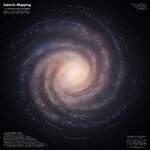Today I docked at Jaques Station, Colonia after a 4 day trek along parts of the Colonia Connection Highway and, as I'm already this far out from the Bubble, I've decided to swing past Sagittarius A* before returning to my home system.
Looking at the Galactic Map, I'm already a little concerned about the return trip, due to the sparse coverage of stars between the Galctic arms. Is it a viable route to head straight back to the Bubble, or should I head back part of the way towards Colonia first? I'm flying a Krait Phantom with 52.6ly jump range that can do ~7 max range jumps between refuel stars.
Please Note: As I play on console, I've not been using any Neutron Star boosting as, by the time I've looked up and used the virtual keyboard to type in the next target system (along with stopping to repair my FSD) it isn't really that much quicker.
Cheers,
Withnail67.
Looking at the Galactic Map, I'm already a little concerned about the return trip, due to the sparse coverage of stars between the Galctic arms. Is it a viable route to head straight back to the Bubble, or should I head back part of the way towards Colonia first? I'm flying a Krait Phantom with 52.6ly jump range that can do ~7 max range jumps between refuel stars.
Please Note: As I play on console, I've not been using any Neutron Star boosting as, by the time I've looked up and used the virtual keyboard to type in the next target system (along with stopping to repair my FSD) it isn't really that much quicker.
Cheers,
Withnail67.

